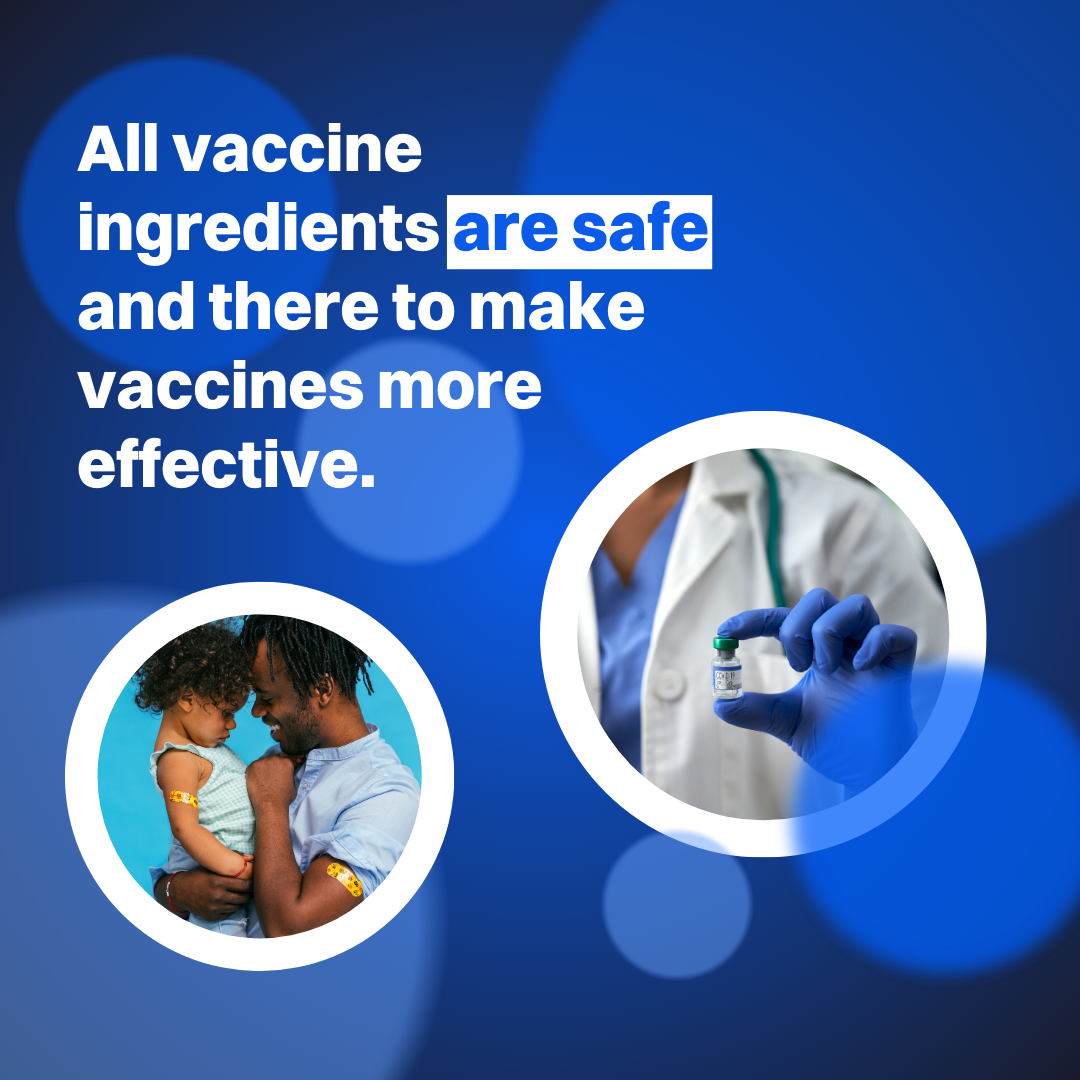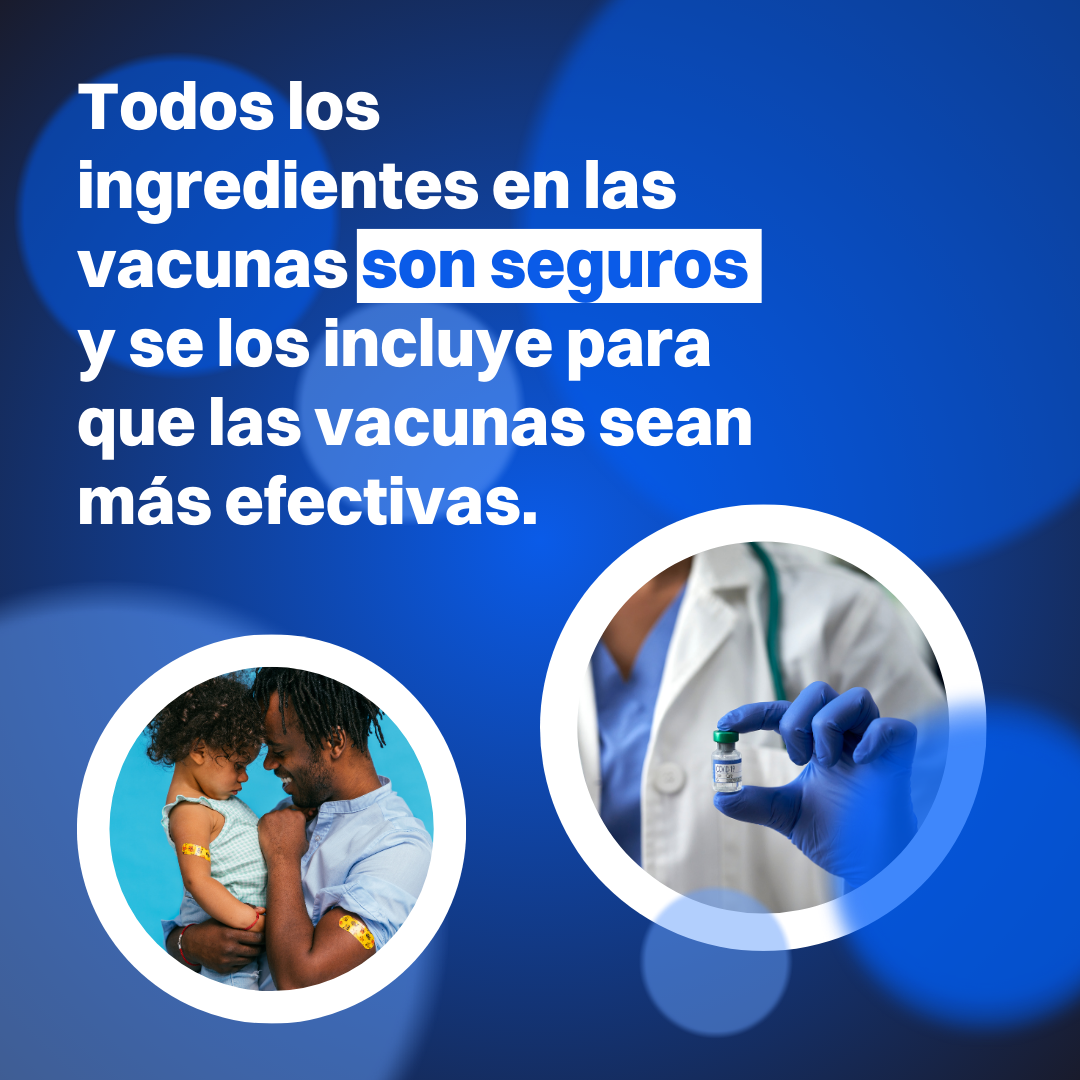Routine vaccines face scrutiny at the federal and state levels
In the last month, routine vaccines were subjected to unfounded criticism and false claims from high-profile political figures. President-elect Donald Trump and people affiliated with his proposed health team promoted the myth that childhood vaccines cause autism and questioned the safety of polio vaccines. Meanwhile, Louisiana health officials restricted the promotion of certain vaccines, and false rumors circulated about the alleged toxicity of ingredients in numerous routine vaccines.
For even more resources, check out the menu above for real-time insights, training resources, and more. Specifically curated for people working in health care and public health, these links provide actionable content to help navigate today’s information landscape.
Trending narratives from the past month
Incoming presidential administration questions vaccines
In a December 8 interview, President-elect Donald Trump said that he would consider banning vaccines if they were “dangerous for children” and insinuated that vaccines are linked to autism. When the interviewer correctly noted that research has definitively disproved any link between vaccines and autism, Trump insisted that he is “open to” further investigation. A few days later, the New York Times reported that a lawyer who is assisting Trump in the selection of potential federal health officials petitioned the FDA in 2022 to revoke its approval of the inactivated polio vaccine. Several politicians who previously expressed anti-vaccine sentiments attempted to distance themselves from criticism of the polio vaccine. The lawyer behind the petition responded to the discourse in a series of social media posts, claiming that the polio vaccine used in the U.S. since 2000 was not properly tested and repeating the myth that no routine vaccines have been subjected to randomized controlled trials. Read the fact checks here and here.
Louisiana bars public health promotion of certain vaccines
On December 20, NPR reported that a new statewide policy would bar Louisiana departments of health from “advertising or otherwise promoting” flu, COVID-19, or mpox vaccines. NPR reportedly confirmed that the policy was discussed in at least three agency meetings. Several Louisiana Department of Health staff said that the policy would be “implemented quietly and would not be put in writing.” In a statement to NPR, the department said that policy represents a shift “away from one-size-fits-all paternalistic guidance” and stated that immunization is an “individual’s personal choice.” Some social media users expressed concern that the policy will decrease vaccine uptake. One of the most popular responses described the policy, as well as the Florida surgeon general’s call to ban mRNA COVID-19 vaccines, as “the dismantling of public health.” However, many online commenters were supportive of the policy, falsely claiming that vaccines aren’t necessary and cause “misery and death.” Read the fact check here.
Misleading claims are circulating online about vaccine ingredients
False and misleading claims about vaccine ingredients are circulating widely on social media. A viral video sparked debate about the use of fetal cell lines to develop vaccines, with one popular post claiming that abortion exists as a means to acquire fetal tissue for vaccines. Other social media users claim that the hepatitis B vaccine contains thimerosal, HPV vaccines contain graphene oxide, COVID-19 vaccines contain HIV, and multiple routine vaccines contain aluminum that causes developmental delays. Additionally, several popular anti-vaccine accounts are recirculating the false narrative that mRNA COVID-19 vaccines contain the SV40 virus, claiming it causes cancer. Read the fact checks here and here.
What you might say in response
Childhood vaccines are safe, thoroughly tested, and life-saving.
- There is no link between vaccines and autism. That’s an anti-vaccine myth that scientists have definitively disproved. As one University of California, Los Angeles autism researcher stated, “No, there is absolutely no evidence that vaccines cause autism.”
- Researchers have studied a potential link for decades and have repeatedly shown that there is no connection. In fact, the only basis that promoters of this myth rely on to support the claim is a retracted study from a discredited physician who was found to have engaged in unethical research practices.
- The polio vaccine is one of the safest and most effective vaccines in history, with no serious adverse reactions associated with it. Safety data from millions of vaccine doses reveal few adverse events and no safety concerns.
- The lawyer who petitioned the FDA in 2022 to revoke its polio vaccine approval is associated with an anti-vaccine group and has a history of making false and misleading claims about various vaccines on social media.
Every ingredient that goes into a vaccine is there for a reason and is tested to ensure that it is safe.
- Fearmongering about allegedly toxic vaccine ingredients is a common anti-vaccine tactic.
- Thimerosal, which has not been in any childhood vaccine in over two decades, is a form of mercury that the body can safely process and is completely harmless in low doses. The substance prevents bacterial and fungal contamination in vaccine vials.
- Aluminum boosts vaccine effectiveness without any safety risk. The amount of aluminum in vaccines is about the same as the amount in baby formula.
- Graphene oxide can be used in sensors to detect HPV in the body, and cells collected from fetal tissue from the 1970s have been used for decades to develop many medicines. No vaccines contain graphene oxide or fetal cells.
- Some COVID-19 vaccines contain a small fragment of SV40 but not the full virus. These DNA fragments are harmless, are not biologically capable of inducing cancer, and have been used in medical research for decades.
Vaccines are a life-saving tool for public health.
- Research shows that public health promotion of vaccines, including public service announcements and routine reminders, increases vaccine uptake.
- Health care providers and public health workers are responsible for informing the public about vaccination as a means of protecting themselves and their community from disease.
- Vaccine-preventable diseases are not “individual” concerns because they can spread from person to person, putting everyone at risk.
What we’re reading
- CIDRAP: Study: COVID-19 hospital cases, deaths in nursing homes fell sharply after widespread vaccination
- JHU International Vaccine Access Center: Suboptimal Vaccination Rates Leave Children, Older Adults Susceptible to Respiratory Illness
- Center for American Progress: Childhood Vaccination Has Saved Millions of Lives, but Rising Hesitancy Could Reverse Decades of Progress
Studies and trainings
- Annenberg Public Policy Center: Greater Acceptance of RSV Vaccine Seen as Vaccine Hesitancy Appears to Have Plateaued
- Public Health: Impact of COVID-19 pandemic on vaccine hesitancy and sentiment changes: A survey of healthcare workers in 12 countries - ScienceDirect
Interested in learning more about how to debunk false claims with patients? Check out the new Infodemiology Training Program. In videos that range from 5 to 10 minutes each, the program introduces health care providers to the basics of infodemiology and provides you with actionable skills to help improve patient care. Get started today.
Quick response media assets
Below, we've provided a social media asset in English and Spanish. Use these assets on social media to fight false claims and help provide your network with accurate information. Just right-click the asset, or press and hold on mobile, to download.

Proposed social copy:
Vaccine opponents often list unfamiliar or scary-sounding ingredients in vaccines to mislead people and discourage vaccination. In reality, there are no “toxins” in vaccines because all vaccine ingredients are rigorously tested for safety. Every ingredient that goes into a vaccine makes it safer and more effective.

Publicación propuesta:
Los opositores a las vacunas a menudo mencionan algunos ingredientes en las vacunas que suenan aterradores para engañar a las personas y desalentar la vacunación. En realidad, no hay “toxinas” en las vacunas porque todos los ingredientes incluidos en ellas pasan por pruebas rigurosas de seguridad. Cada ingrediente que se usa en una vacuna la hace más segura y efectiva.
The Health Care Infodemiology Brief is brought to you by PGP, the health care leadership of the Trusted Messenger Program, and Infodemiology.com’s sponsors and partners.
